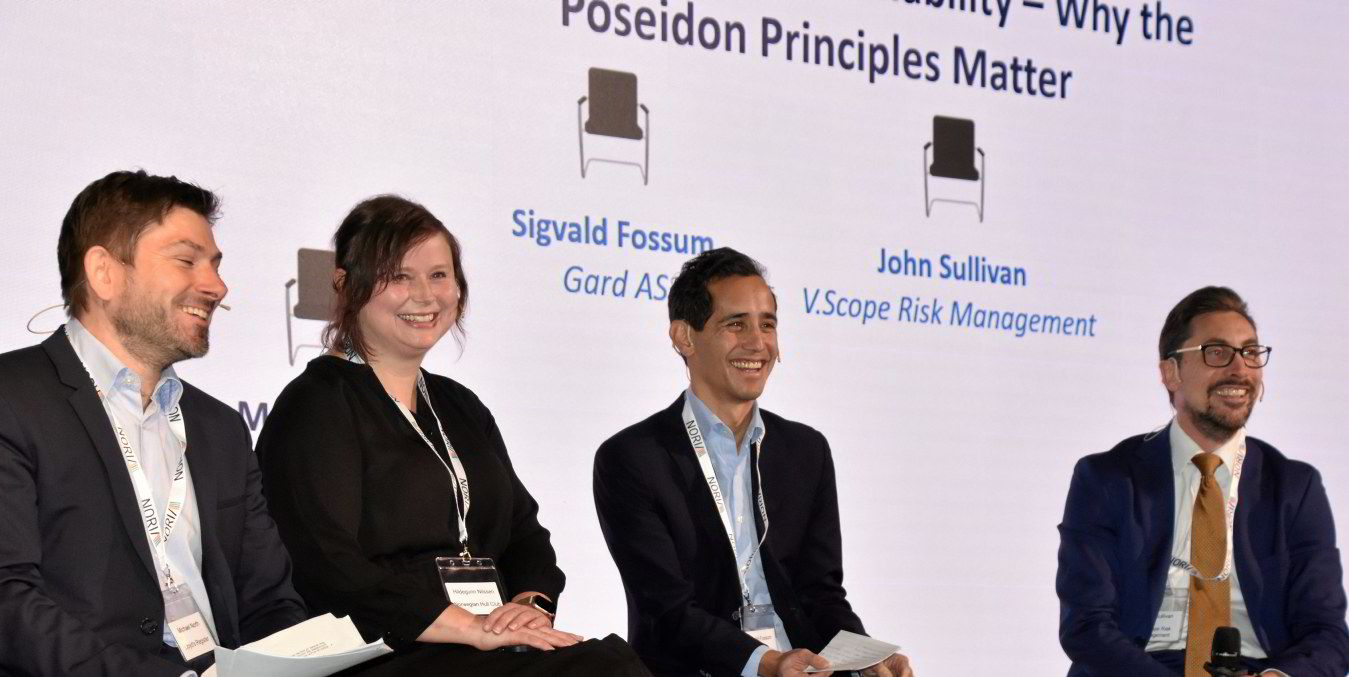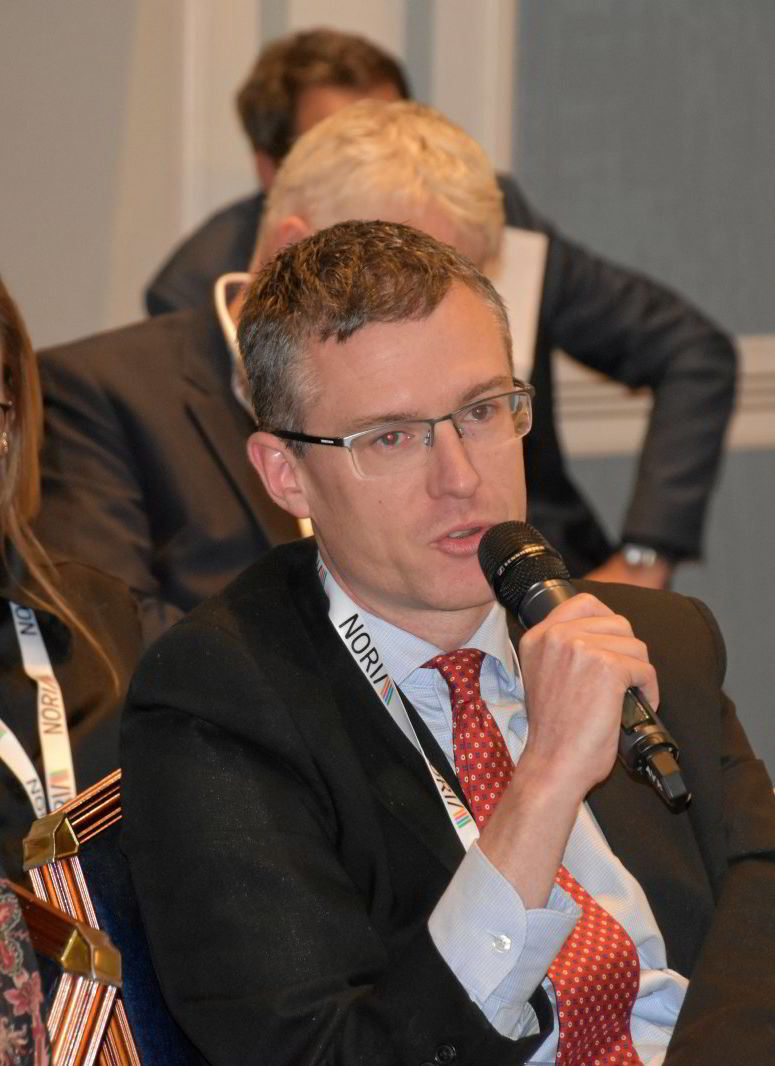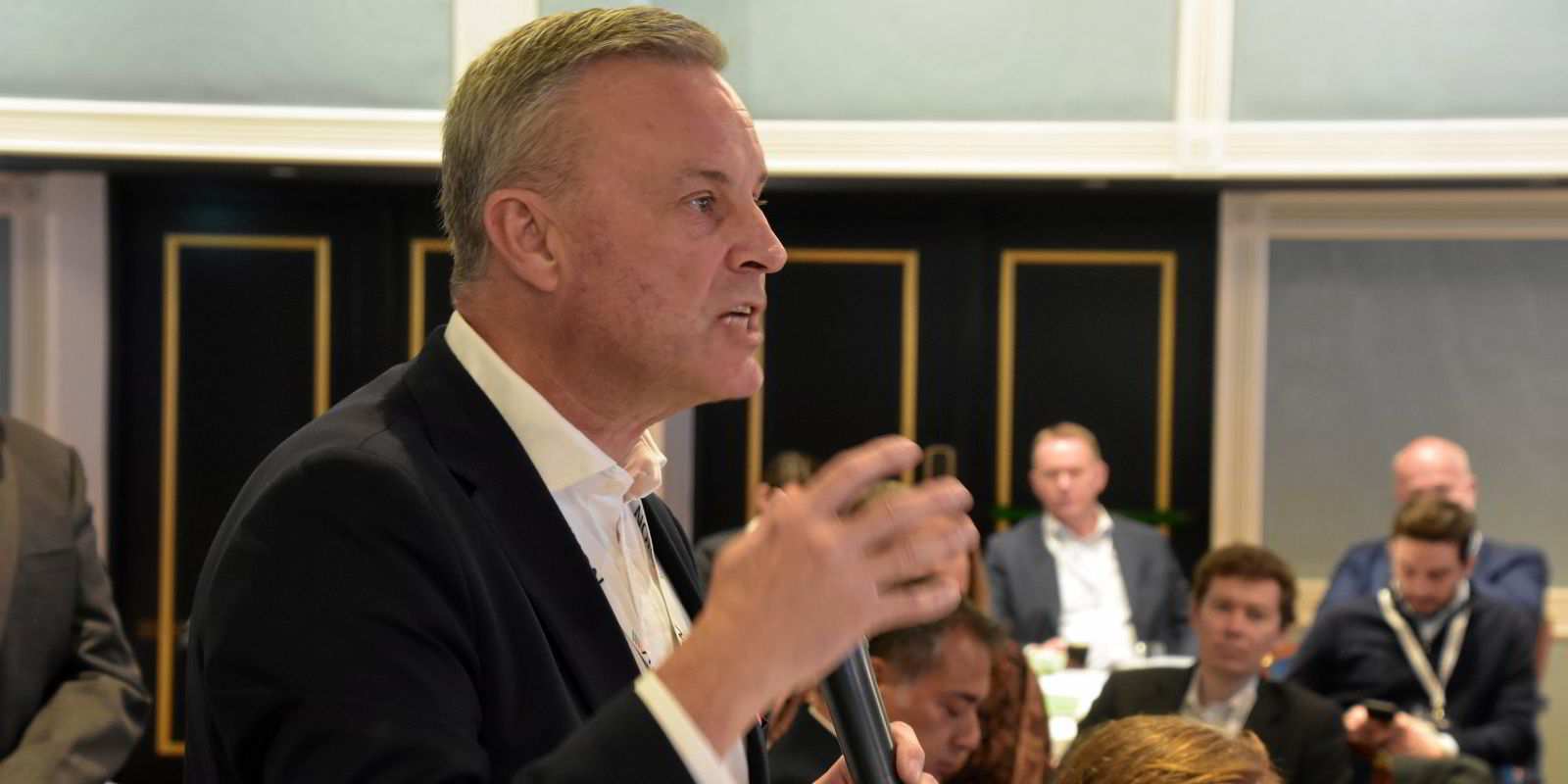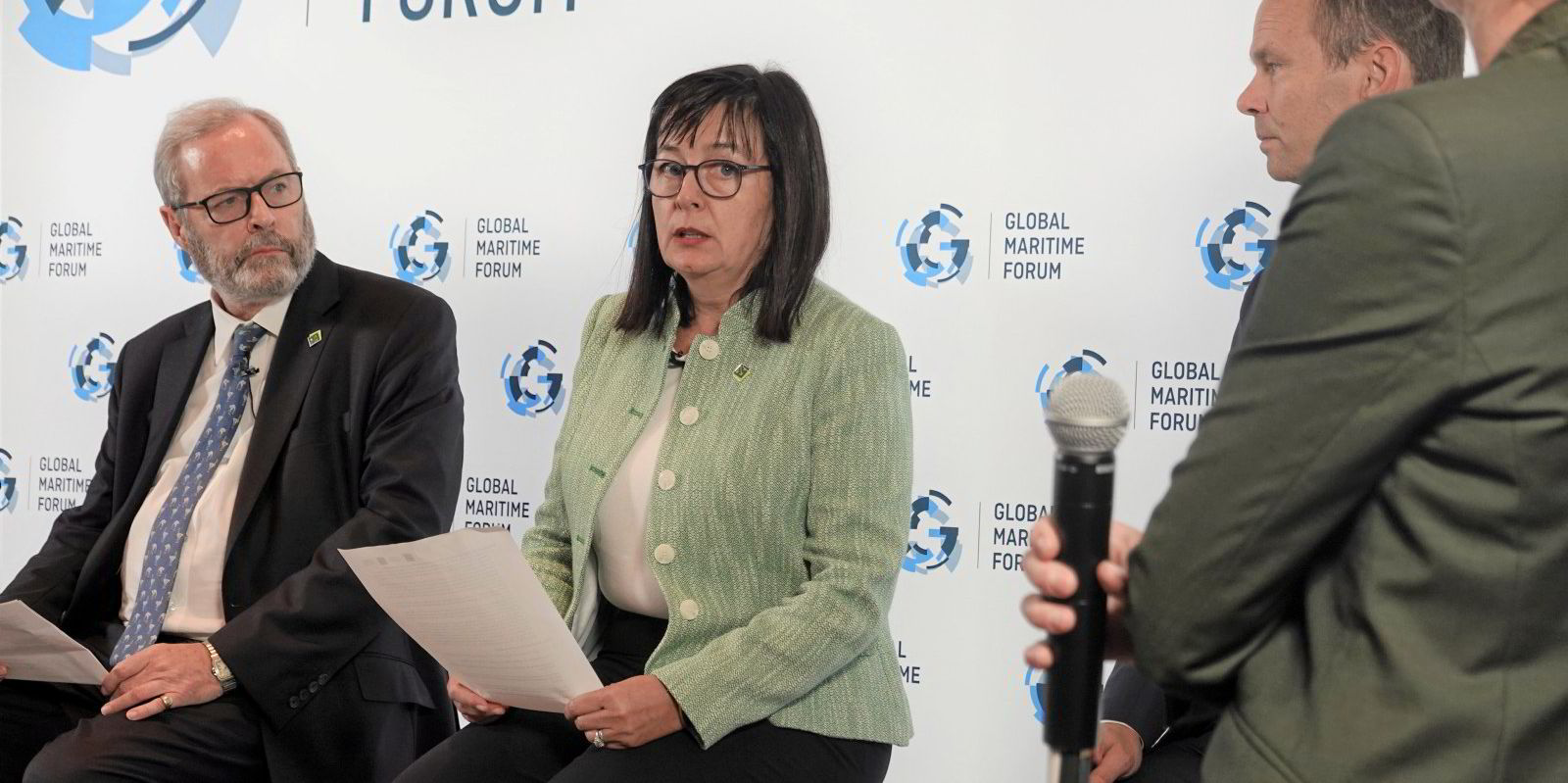Members of the International Group of P&I Clubs are in discussions over signing onto the Poseidon Principles for Marine Insurance to promote decarbonisation, but they are finding the decision a difficult one.
Several representatives of key protection and indemnity clubs said the move would be positive in ESG — environmental, social and corporate governance — terms and would ease their access to reinsurance funds.
However, it could also conflict with the core organisational goals and interests of their members, they said at the Marine Insurance Nordics conference in Oslo.
The Poseidon Principles for Marine Insurance was launched last December, following the outlines of the Poseidon Principles for financial institutions.
Swiss Re Corporate Solutions, Gard, Hellenic Hull Management, SCOR, Victor Insurance and the Norwegian Hull Club were the initiative’s initial signatories.
P&I clubs are not even eligible currently. But this could change soon. However, it is unclear if they would leap at the opportunity.
One key question is whether clubs, as member-owned mutuals, are suited to the Poseidon Principles for Marine Insurance, which could put them in a position of policing rather than supporting their members.
Another is whether committing to these principles would tend to drive lesser vessels and shipowners out of the International Group, create a two-tiered insurance market and thus work against the great external benefit of liability insurance — making sure catastrophic risk is covered for society’s sake.
The Poseidon Principles for Marine Insurance requires reporting and transparency about emissions performance but the question is when reporting the numbers will turn into enforcing the numbers.
Tore Forsmo, Norway head of the Swedish Club and vice chairman of the International Union of Marine Insurance, was among those who wanted to know.
“Obviously down the line we also have to look at how we can contribute if the figures aren’t going down,” responded Norwegian Hull Club communication director Hildegunn Nilssen.

That contribution might come in the form either of rewards or penalties.
Panel moderator Michael North, Lloyd’s Register’s Norway and Iceland commercial manager, wanted to know if that will come in the form of penalties or rewards.
John Sullivan, managing director of V.Ships captive insurance broker V.Scope Risk Management, was among several panellists who said talk of rewards is not realistic given the economics of marine insurance.
“There is just too little premium in the market to give reductions,” said Sullivan. “They wouldn’t be enough.”
Mark Church, director of freight, demurrage and defence and head of sustainability at North P&I Club, raised the question of whether some vessels and shipowners might be pushed out of the International Group if they found themselves exposed to standards they could not meet.
Panellist Sigvald Fossum, head of analytics at Norwegian insurer Gard, responded by pointing to the financial pressure from the reinsurance market, with its concern for ESG reporting, and the danger the big reinsurers might walk away from the marine market.
“If we want to hang onto the reinsurers, then being seen as proactive is important,” he said.
But Fossum pointed out that he had to speak both from the perspective of a hull insurer and a P&I insurer, and that the answer might be different depending on which hat he was wearing. Gard’s membership in the Poseidon Principles for Marine Insurance is only for its hull-and-machinery business, not P&I.

“It’s not that I’m sceptical about PPMI,” North P&I’s Church said, referring to the Poseidon Principles for Marine Insurance. “But we see our job as supporting our members on their journey, not policing them. We don’t want to become another pressure point.”
On the sidelines of the conference, he told TradeWinds that conversations are now ongoing within the International Group on the question of signing onto the Poseidon Principles, at a level of principle.
“The PPMI is at present not open to P&I clubs, and the question is whether it should be,” said Church.
The group is also concerned that its broader mission could be compromised. The International Group’s goal has always been to cover as much as possible of the risk of disasters such as large oil spills.
“The point is that large incidents should have an International Group level of cover,” Church told TradeWinds.

Panellists said the Poseidon Principles for Marine Insurance is promoting greater cooperation among the insureds of hull and machinery underwriters. But data-sharing does not come naturally to shipowners, so there are limits.
“Data is made public only on a portfolio level,” said Gard’s Fossum. “There is concern that data would be published at a level where ships were identifiable. We don’t do that.”




